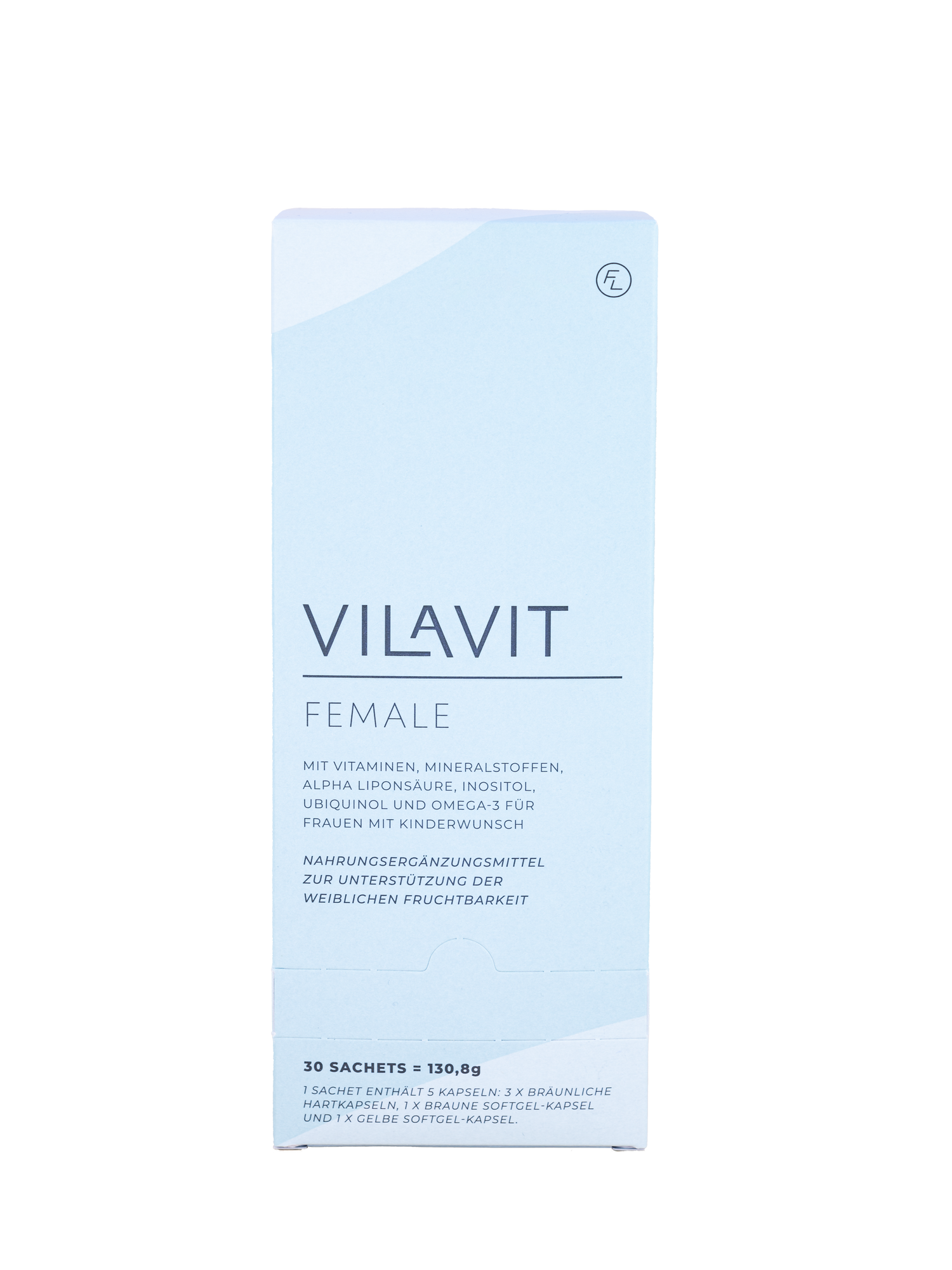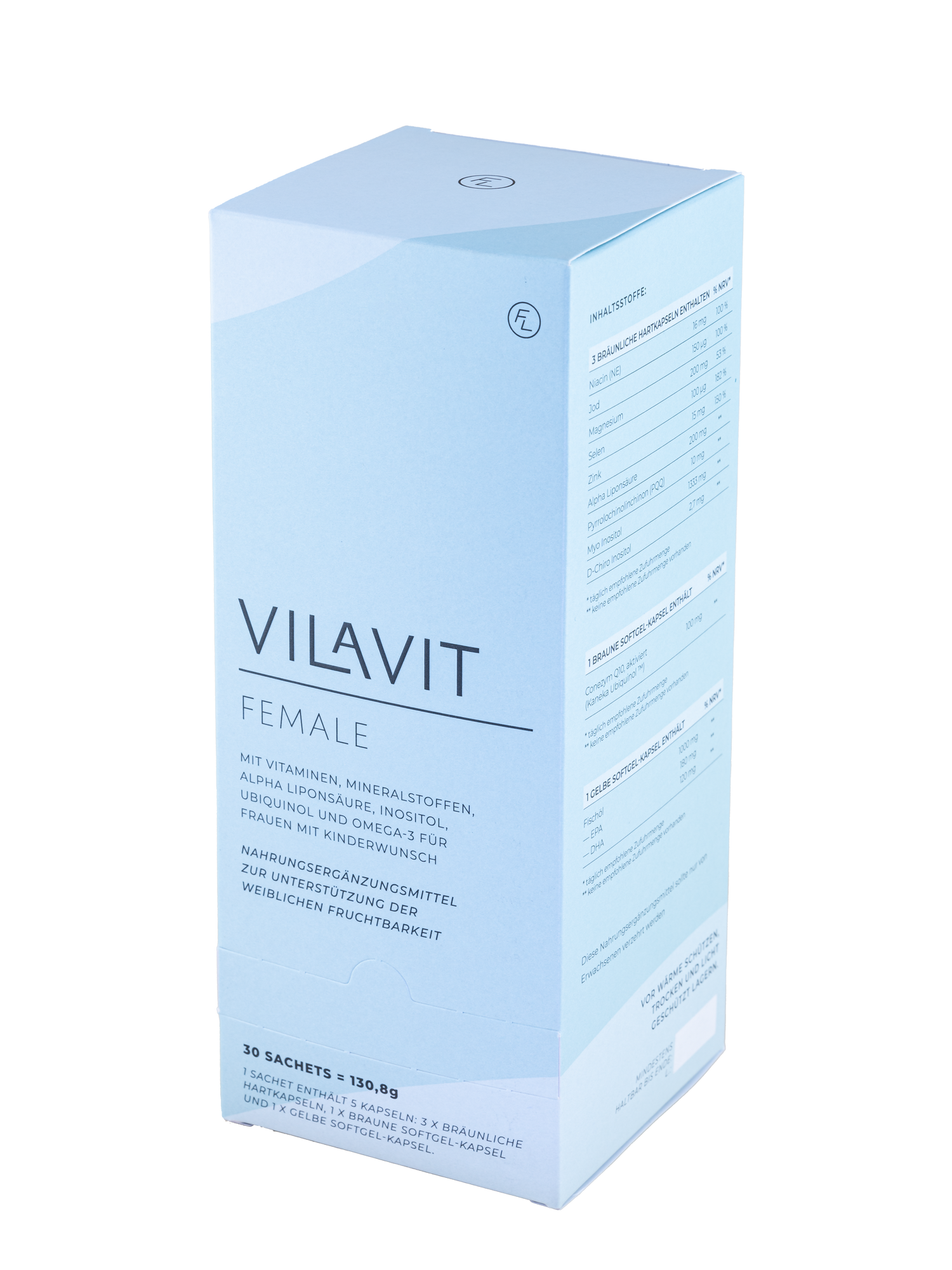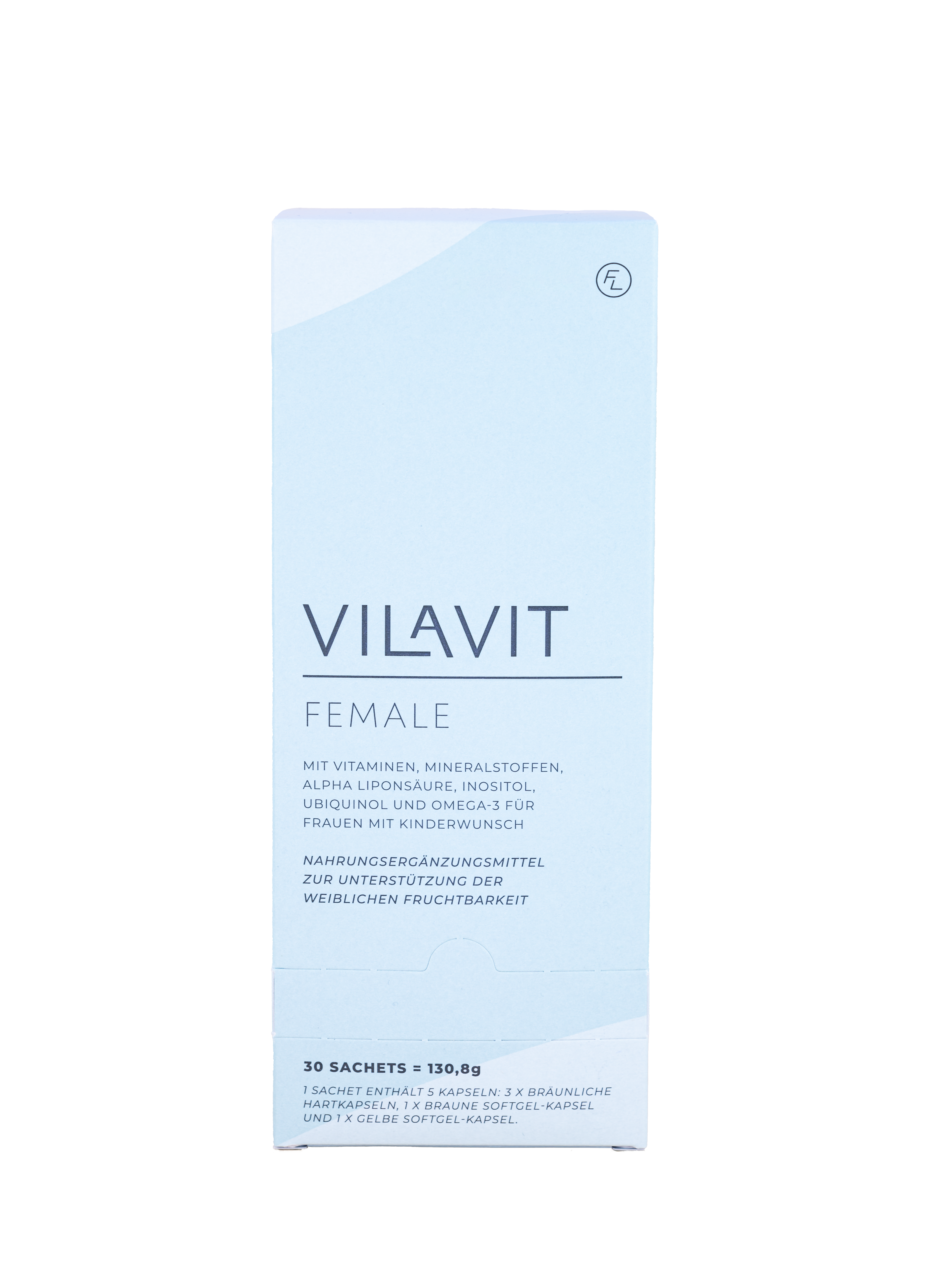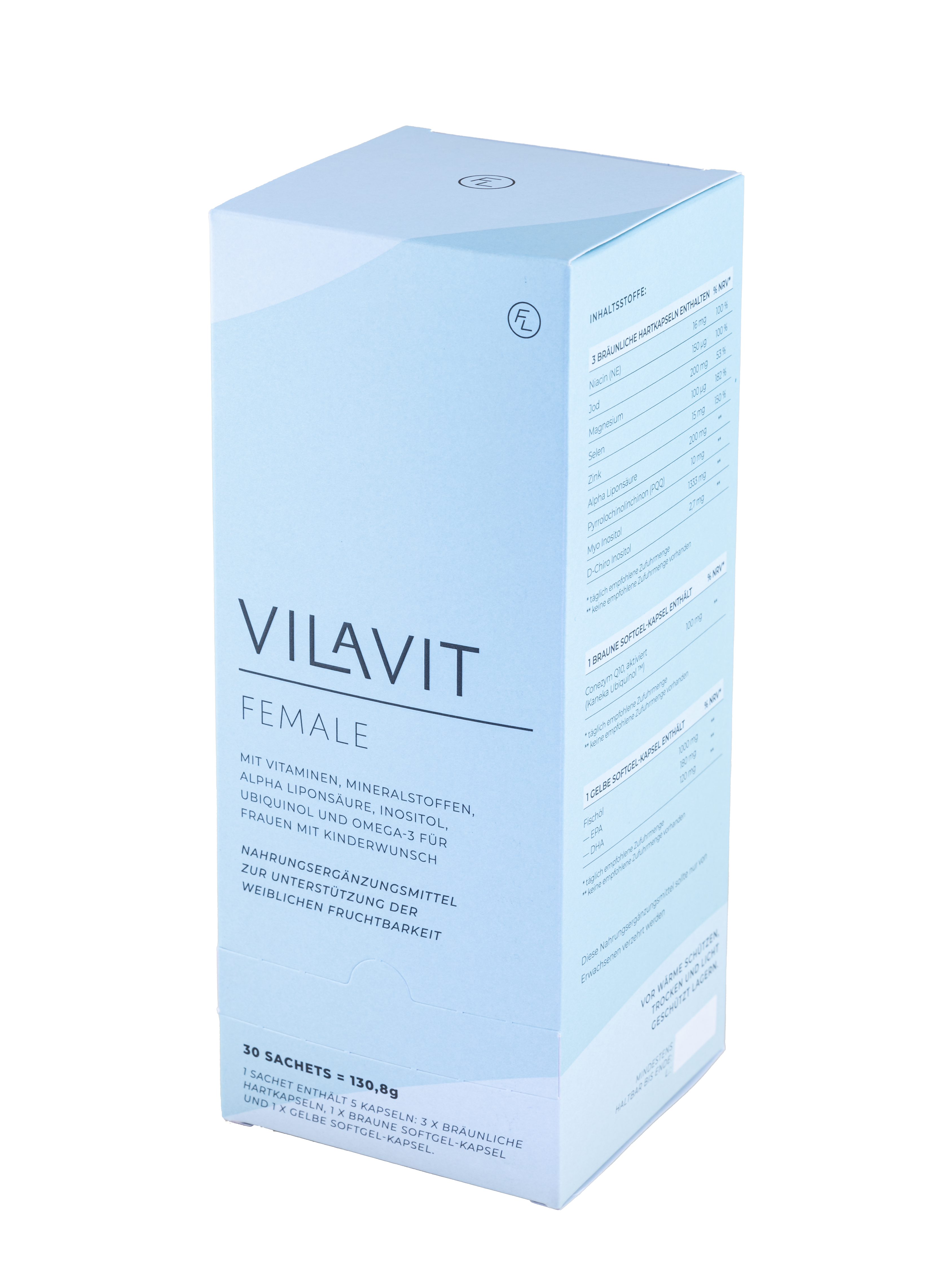The journey to parenthood can be challenging for many couples, especially when the causes of an unmet desire for children are not always clear. Often, egg quality is identified as a crucial factor affecting fertility. Poor egg quality can significantly reduce the chances of a successful pregnancy and presents a considerable obstacle for many couples.
Lifestyle, diet, and micronutrients are critical factors in improving egg quality. One important substance that has shown significant impact on egg quality in scientific studies is Ubiquinol, the bioavailable form of Coenzyme Q10.
So, what exactly is Ubiquinol, and how can it help with an unmet desire for children? In the following article, we will explain the mechanism of action of Ubiquinol, highlight the differences from Ubiquinone, and present relevant study results.
What is Coenzyme Q10 in the Form of Ubiquinol?
Ubiquinol is the reduced form of Coenzyme Q10 (CoQ10), a vital antioxidant found in the cells of the body responsible for energy production in the mitochondria.
CoQ10 exists in two main forms: Ubiquinone and Ubiquinol. Ubiquinol is the active form that can be directly used by the body, whereas Ubiquinone must first be converted into Ubiquinol to exert its effects.
Mechanism of Action of Ubiquinol
Energy Production and Meiosis
Ubiquinol is essential for the production of ATP, which is the main energy source for our cells. Mitochondria, which can be thought of as the "powerhouses" of the cells, are responsible for producing ATP. This is particularly crucial in eggs and sperm, where a lot of energy is needed for cell division and development.
During meiosis, the process of cell division that results in the formation of fertilizable eggs and sperm, mitochondria are essential. Meiosis requires a substantial amount of energy to separate chromosomes and ensure the correct number of chromosomes in the daughter cells. Ubiquinol contributes to the energy supply for these processes through its role in ATP production. Adequate Ubiquinol levels can therefore support the quality and functionality of eggs and sperm by ensuring enough energy for proper cell division and development.
In older couples, energy production for meiosis is often reduced. Therefore, Ubiquinol is particularly important for supporting energy production and ensuring proper cell division.
Antioxidant Effect
Besides its role in energy production, Ubiquinol acts as a powerful antioxidant. It protects cells from oxidative stress caused by free radicals. Oxidative stress can lead to DNA damage, cell aging, and impaired cell function, which is especially critical for eggs and sperm. By neutralizing oxidative damage, Ubiquinol helps maintain the quality of reproductive cells and improves overall fertility.
Cell Protection
Ubiquinol protects cell membranes and supports overall cell health. A healthy cell environment is crucial for the optimal functioning of the ovaries, uterus, and sperm. By supporting cell health, Ubiquinol helps keep reproductive organs in optimal condition, which can increase the chances of a successful pregnancy.
Differences Between Ubiquinone and Ubiquinol
-
Bioavailability
Ubiquinol is the biologically active form of CoQ10 and has higher bioavailability than Ubiquinone. This means that Ubiquinol is more easily absorbed and utilized by the body. This higher bioavailability makes Ubiquinol particularly effective.
-
Oxidation
Ubiquinone must be converted to Ubiquinol in the body to perform its function. This conversion can often be inefficient, making Ubiquinol the preferred direct and more effective form.
-
Stability
Ubiquinol is more sensitive to light and air, which can affect the stability of supplements.
-
Price
Ubiquinol and Ubiquinone differ not only in their effects but also in their price. Ubiquinol, as the biologically active form of Coenzyme Q10, is often more expensive than Ubiquinone. Many supplements therefore include the cheaper, but much less effective Ubiquinone. To achieve the best possible results, the more expensive Ubiquinol is recommended.
Study Results on Ubiquinol and Fertility
Improvement in Egg Quality and Pregnancy Rate
A study published in 2015 in the Journal of Assisted Reproduction and Genetics investigated the effects of CoQ10 (mainly in the form of Ubiquinol) on women over 35 years old. The study showed that Ubiquinol supplementation improved egg quality and increased success rates in in-vitro fertilization (IVF). The authors concluded that Ubiquinol, due to its role in energy production and antioxidant effects, could positively impact fertility (Florou et al., 2020).
Improved Sperm Motility and Concentration
A study published in 2016 in Fertility and Sterility found that Ubiquinol can improve sperm quality in men with fertility issues. The study reported significant improvements in sperm motility and concentration as well as a reduction in oxidative stress through Ubiquinol supplementation (Mori, T. et al., 2016).
Ubiquinol More Effective
A 2018 study published in Food & Function examined the differences between Ubiquinone and Ubiquinol. Ubiquinol proved to be more effective due to its better bioavailability (Zhang et al., 2019).
Coenzyme Q10 in Recurrent Miscarriages
A study with 36 women showed that CoQ10 supplementation reduced inflammatory markers in women with antiphospholipid syndrome, a common cause of miscarriages (Perez et al., 2017).
Another study with women who had a history of miscarriages found that these women had lower CoQ10 levels in their bodies. Women who took CoQ10 showed reduced inflammatory markers.
These preliminary studies suggest that CoQ10 may reduce the risk of miscarriages and recurrent pregnancy loss. However, further, larger studies are needed to confirm these results.
Ubiquinol: A Key Substance for Enhancing Fertility
Ubiquinol is crucial for couples with a desire to have children, as it offers promising benefits through its role in energy production and antioxidant effects. Especially individuals with fertility issues and older couples can benefit from targeted Ubiquinol supplementation to improve their chances of a successful pregnancy.
References
- Florou P, Anagnostis P, Theocharis P, Chourdakis M, Goulis DG. Does coenzyme Q10 supplementation improve fertility outcomes in women undergoing assisted reproductive technology procedures? A systematic review and meta-analysis of randomized-controlled tri
- Mori, T., et al. (2016). "Effect of Ubiquinol on sperm parameters in infertile men." Fertility and Sterility.
- Zhang, Y., et al (2018). „Ubiquinol is superior to ubiquinone to enhance Coenzyme Q10 status in older men”
















